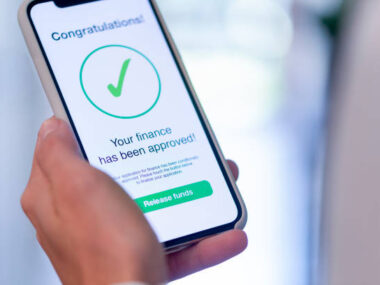Personal Loan Eligibility Criteria for Leading Lenders
1. Credit Score Requirements
Your credit score plays a pivotal role in determining your eligibility for a personal loan. Leading lenders typically set minimum credit score requirements that applicants must meet to qualify for a loan. A higher credit score indicates a lower credit risk, making you more attractive to lenders. Lenders may also offer better interest rates and terms to borrowers with excellent credit scores.
2. Income Verification
Lenders assess your income to ensure that you have the financial means to repay the loan. They typically require proof of steady income, such as pay stubs or tax returns. The income requirements vary depending on the lender and the loan amount. Applicants with higher incomes may qualify for larger loan amounts and better terms.
3. Employment History
Stable employment is another essential factor that lenders consider when evaluating loan applications. Lenders prefer borrowers with a consistent employment history, as it demonstrates financial stability and the ability to repay the loan. They may require applicants to provide employment verification documents, such as employment letters or recent pay stubs.
4. Debt-to-Income Ratio (DTI)
Your debt-to-income ratio (DTI) compares your monthly debt payments to your gross monthly income. Lenders use this ratio to assess your ability to manage additional debt responsibly. A lower DTI indicates that you have sufficient income to cover your existing debts and the proposed loan payment. Lenders typically prefer borrowers with a DTI below a certain threshold.
5. Citizenship and Residency Status
To qualify for a personal loan, you must be a citizen or legal resident of the country where you’re applying for the loan. Lenders may require proof of citizenship or residency, such as a passport or driver’s license. Non-citizens may need to provide additional documentation to verify their legal status.
6. Age Requirements
Most lenders set minimum age requirements for loan applicants. You must be at least 18 years old to apply for a personal loan. Some lenders may have higher age requirements, especially for larger loan amounts. Age eligibility criteria ensure that borrowers are legally capable of entering into a loan agreement.
7. Collateral or Guarantor
While personal loans are typically unsecured, some lenders may require collateral or a guarantor for riskier applicants or larger loan amounts. Collateral provides security for the lender in case the borrower defaults on the loan. A guarantor, on the other hand, is a co-signer who agrees to repay the loan if the borrower cannot.
Personal Loan Eligibility Criteria for Leading Lenders:
- Can I qualify for a personal loan with bad credit? Yes, some lenders specialize in offering personal loans to borrowers with less-than-perfect credit. However, you may face higher interest rates or stricter terms compared to borrowers with excellent credit.
- How can I improve my chances of loan approval? You can improve your chances of loan approval by maintaining a good credit score, demonstrating steady income, and minimizing existing debts. Providing accurate and complete documentation can also expedite the loan approval process.
- Will applying for multiple loans affect my credit score? Applying for multiple loans within a short period can have a temporary negative impact on your credit score. Lenders may interpret multiple loan applications as a sign of financial distress or irresponsible borrowing behavior. It’s essential to research lenders and loan options carefully before applying to minimize credit inquiries.
- Can I negotiate the terms of my personal loan? Yes, in some cases, you may be able to negotiate the terms of your personal loan, such as the interest rate or repayment schedule. Having a strong credit profile and a history of responsible borrowing can strengthen your position during negotiations.
- How long does it take to get approved for a personal loan? The time it takes to get approved for a personal loan varies depending on the lender and the complexity of your application. Some lenders offer instant approval decisions, while others may take several days to review your application and documentation.
- What happens if I miss a loan payment? Missing a loan payment can have serious consequences, including late fees, increased interest rates, and damage to your credit score. If you anticipate difficulty making a payment, it’s essential to contact your lender as soon as possible to explore alternative options, such as a payment arrangement or loan modification.






